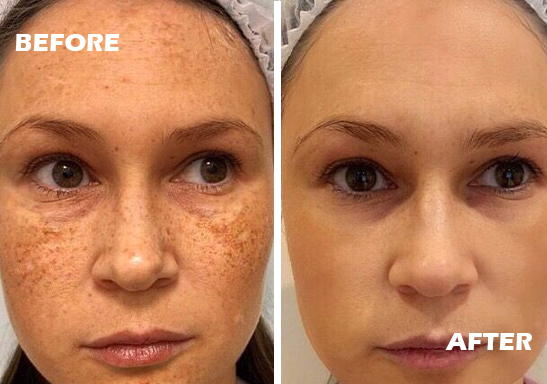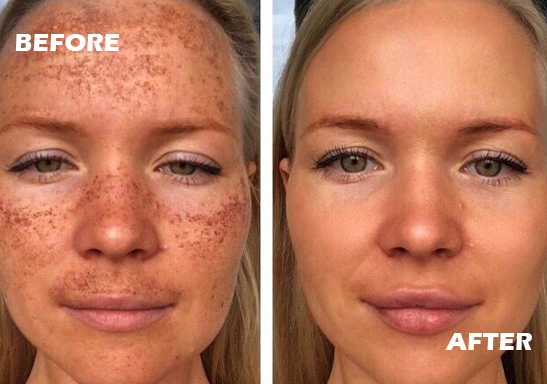Pigmentation
Pigmentation refers to the coloring of your skin. Uneven pigmentation can manifest as dark spots, sunspots, or freckles. Various treatments can address hyperpigmentation and achieve a more even skin tone.


Symptoms
Skin disorders of pigmentation result in formation of black or dark spots in skin causing uneven skin tone. Melasma or lentigines might be symmetrical, while age spots or post-inflammatory hyperpigmentation might differ in size and can affect sun-exposed skin. These are specific alterations visible at the skin are and many people feel uncomfortable after undergoing such changes.
Causes
The main causes of pigmentation issues include sun exposure, hormonal changes, and inflammation from skin conditions like acne. Genetics may also play a role, as some individuals are predisposed to developing uneven pigmentation. Certain medications can increase skin sensitivity, leading to pigmentation changes.
Treatment
Treatments for pigmentation may involve topical lightening agents, such as hydroquinone or azelaic acid, and procedures like chemical peels or laser therapy that target dark spots. Sun exposure needs to be avoided on the skin to ensure sustainability of the results obtained after the treatment. Consistent use of sunscreen is crucial to protect against further pigmentation and maintain treatment results.
Tips from our experts
Our experts have advised that one should use sunscreen with broad spectrum SPF every day.The facial cleansers assist in increasing the natural skin color, and using vitamin boosting serums makes the skin lighter.Like age spots or post-inflammatory hyperpigmentation may vary in size and can be found in sun-exposed areas. Individuals often feel self-conscious about these visible skin changes.
